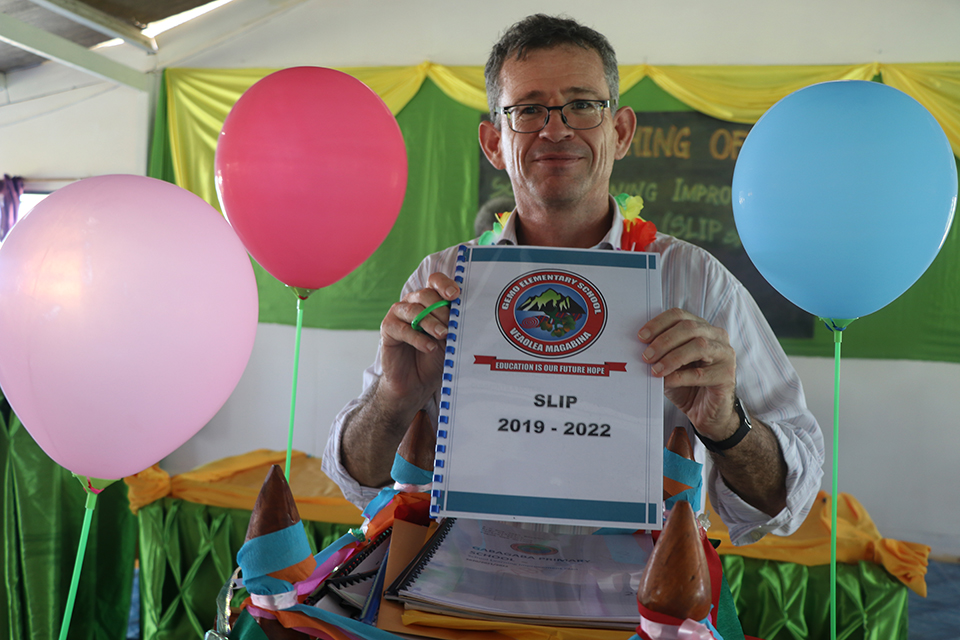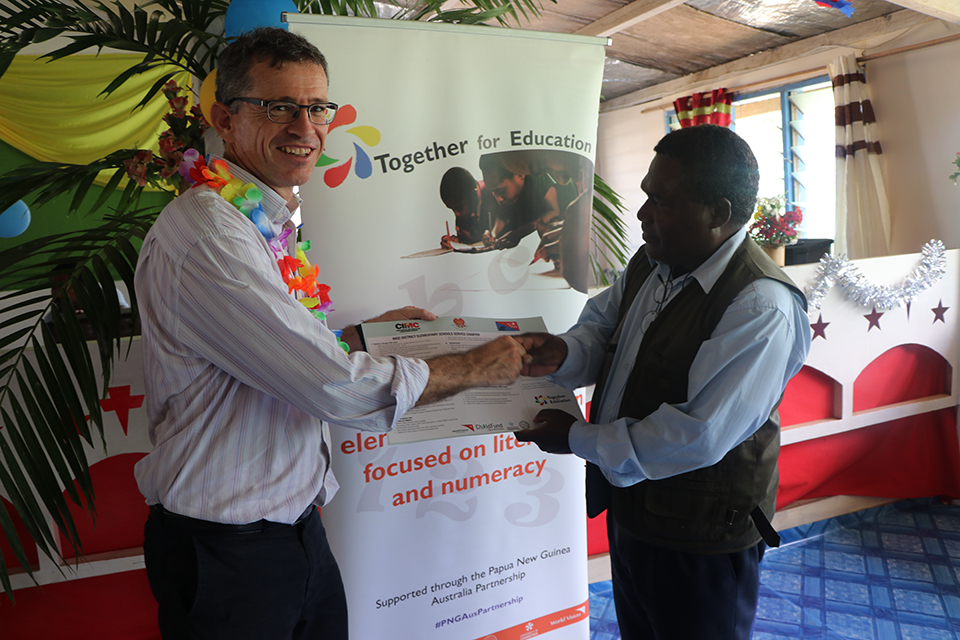Parents, teachers and government officials in the Rigo District came together to mark the end of their children’s academic year with the launch of new commitments and plans to improve the literacy and numeracy outcomes of elementary students.
Rigo District celebrated the launch of new School Learning Improvement Plans (SLIP) and a Central Province Elementary School Service Charter on Tuesday 3 December.
This is the second launch in Central Province, following a similar event in Kairuku District in September 2019.
SLIPs are a key component of the National Department of Education’s Planning framework.
The SLIP and Service charters go hand-in-hand to support priorities identified by each school, including continuous teacher development, resource generation opportunities, school infrastructure needs, and commitments to gender and disability inclusive teaching strategies.
Speaking at the launch Dr Michael Quinn from the Australian High Commission said, “The SLIPs outline the vision for your individual schools and may support you in generating additional resources to improve your children’s education.
Your schools are role models and I hope you share your successes and experiences with other schools in the District and the province to help them develop their SLIPs.”
Head Teacher of Babagarubu Elementary School Renagi Kilagi has seen improvement in his school and more engagement from the surrounding community under the SLIP.
“Elementary classrooms have new flooring and parents and caregivers from the community are more involved in school activities.
“The program has brought changes and is impacting the children and the communities. Their reading skills continue to improve as they continue to access more reading books through reading clubs initiated under the SLIPs.”
Country Director of Child Fund PNG Bridgette Thorold who was also at the launch emphasised the importance of having clear plans in place to guide elementary education and the need for the community to play a role in ensuring a conducive environment for learning.
“The school environment that children grow up in affects their learning, and everyone in the community has a role to play in supporting girls and boys to access a quality elementary education,” she said.
Child Fund is a non-government organisation that works alongside World Vision and a consortium of partners comprising of Library for All Australia, the Consultative Implementation and Monitoring Council (CIMC) and the University of Canberra – to implement the SLIP and Service Charter plans and deliver other educational projects under the Together for Education program.
Through the Together for Education project, Child Fund PNG and CIMC worked with 50 schools in Rigo District over a two-year period to strengthen school planning, increase parental awareness and improve community accountability for elementary education outcomes.
Together for Education is supported through the Papua New Guinea-Australia Partnership.
For further information, including access to related materials, please contact the Australian High Commission media team: +675 7090 0100

Michael Quinn of Australian High Commission launch the Rigo District School Learning Improvement Plan.

Michael Quinn of the Australian High Commission with Central Province Senior School Standards Inspector.
